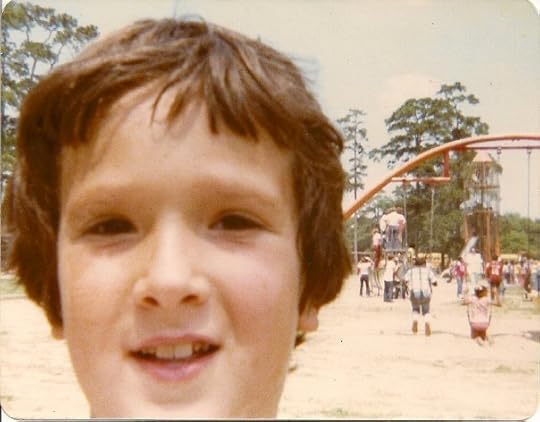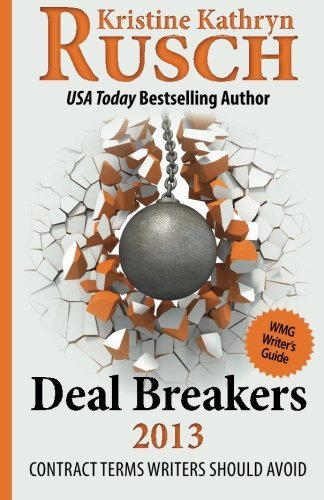My first year as an indie author
When I was eight years old I wrote a story. I remember it vividly; it was handwritten in pencil on four pages of lined paper with the title The Ghost Town written in big, wavy lines at the top. It was a Halloween writing assignment for school and told the tale of a certain young boy’s class trip to an old west ghost town where the rest of the class suddenly vanishes and our hero is left on his own to solve the mystery and rescue his class.
 Buckle up, kid. You’ve got a wild ride ahead of you. And, yes, I invented the selfie.
Buckle up, kid. You’ve got a wild ride ahead of you. And, yes, I invented the selfie.What? Shut up, I was eight.
Anyway, the teacher loved it and read it aloud to the class. Then she read it to the other class that was the same grade as ours. Then she showed it to the principal and he put it up on the bulletin board outside the cafeteria door so everybody could read it. Needless to say, I was a pretty puffed up third grader and from that moment on had the writing bug welded into my DNA.
Fast forward 40 years and here I am. I’ve written more than a million words in all those years. I spent most of my teens and twenties collecting rejections slips for shorts and novel pitches, some of which I wrote anyway, and going through the requisite emotional upheavals associated with the rejection of things that I loved enough to create and throw into the world. Shortly after my 30th birthday I met a published thriller writer that I had a mutual friend with and he was kind enough to read some of my stuff and give me notes. Then, he started telling me about the business of being a pro writer. He was very open with me about the terms of his contracts and the dollar amounts that crossed his bank account and the number of people who took bites out of it. Even then, long before the advent of Kindle and Epub, it was obvious that the book biz was heavily weighted in favor of the publishing houses. (I’m not going to wax on about the inequities of most trad pub contracts, for more on that read this book.)
I came away from that encounter with a very negative attitude. I had been writing all that time with the same delusion that so many people had and still have: publish a book, become rich and famous, retire in luxury. While there are the occasional lightning strikes that prove the exception to the rule, the truth is more like write a book, work like hell to get the book noticed and land a contract, hope that MAYBE you get a little extra money off the book, and then put your head down and start writing the next one so you could start the process all over again.
30-something me responded to that system with a hearty, “screw that noise”. See, I love the writing, the telling of the tale. I’ve loved it my whole life. At the time, I was only pursuing the whole publishing thing because that was what everyone expected me to do and because of the aforementioned delusion. I had other outlets for my story telling that provided me with more immediate gratification and didn’t involve so many gatekeepers and fingers in the story pie. So, I kept writing things but put the submission/rejection grind away with a ‘gave it a good shot’ attitude.
Then, in late 2014, a friend sent me an email for a short story anthology that was taking submissions. I figured since he was kind enough to send me the link, I’d throw something at the thing and see if it stuck. It was my first submission in well over a decade, but I didn’t see the harm in trying.
It was promptly rejected.
HOWEVER, there was a silver lining because as I was researching the anthology, I was refreshing my knowledge of the publishing industry that I had turned my back on all those years earlier. I discovered the big wide world of KDP, Ibooks, and Indie Publishing . It changed my attitude and my life.
 Awakened and Conduit; The first two books of the Paragons Trilogy.
Awakened and Conduit; The first two books of the Paragons Trilogy.So, I wrote Awakened:Paragons Books One and uploaded it to Amazon at the end of February 2015. Despite reading everything I could to educate myself and listening to podcasts like The Self Publishing Podcast, The Creative Penn, The Sell More Books Show, and Rocking Self Publishing, I still don’t think I really had any idea what I was doing.
Now, it’s February of 2016. I’ve written and uploaded the second book of my Paragons Trilogy and anticipate having the third book up in the near future. I’ve run promotions and vetted covers and wrestled with all the business aspects of this writing gig that come about as naturally to me as aerial navigation does to a trout. I’ve spent far more trying to sell books than I’ve earned from selling them (a little over $500 in the course of the year, I’m not shy about it) and I’ve invaded and completely flubbed social media on more than one platform. All that said, I feel like I’m starting to get a little bit of a mental toe-hold in this whole Independent Author business. Here’s a few of the things I’ve learned.
Writing a great book is no guarantee. You have to write the best, most professional book you can, but that in no way guarantees that the book will take off or even sell moderately well. What writing a quality book does is leave a reader/customer with a satisfying experience that will encourage them to buy more of your books and maybe tell their friends about it. This should be a no brainer, though, because who really wants to put out something with their name on it that isn’t the best it could be?
Email Marketing works, either through your own list or a really big pay to play service like Bookbub. Having your own list is ideal, but that takes time and it’s own kind of management. Facebook is useful and Facebook ads work if you put in the time to learn the process and have the budget to properly manage them. Twitter and Instagram marketing doesn’t seem to sell books but is useful for connecting with an audience and building an email list. See my previous post on Social Media for more on that.
Unless you are a professional designer, you MUST pay for a professional looking book cover. This is non-negotiable. The market is flooded and if you don’t have a cover that shines then you will get glossed over in less time than it takes a customer to tap a screen. You also MUST have an editor and that generally means paying for a pro. There are lots of different kinds of editors, but I’m mostly talking about Copy or Line editors who are going to make sure all the punctuation, spelling, and whatnot are correct. Some people use Developmental Editors to help them with plot and such, but I’m too much of control freak when it comes to my stories for that. If you think that’s something you would like, then pay for that, too, but make sure you check references and get a reliable professional.
This is a marathon game with a really long tail. Don’t count on one brilliant masterwork making a living for you. The more books you have out (quality books- remember), the more there are for readers to purchase and the more chances you have to get paid. If you want this to be how you make your living, then you have to get a little mercenary about it. That doesn’t mean ignore what your gut tells you to write, but it does mean that at some point you have switch from this is my book thinking to this is my product thinking. Time, effort, and patience are you greatest allies.
Series sell better than stand alone novels. People like to get immersed in the worlds of the characters they love and they always want to know what happens next and right damned now, too. A good series plays well into that long tail game I was talking about in number 4.
Pick a genre. Readers like genres. My Paragons Trilogy is a pretty clear mashup of horror, urban fantasy, and superhero fiction. I think it has suffered for it. In fact, I believe that the fact it is so clearly and unapologetically a mashup has caused a lot of people to not want to take a chance on it. That might change one day, but I can tell you my next series will clearly fit into one of the established genres. So, pick a genre.
This is a job. Period. It’s an awesome job, one that most people do for the sheer love of it, but it is work. You have to treat it with all the get-up-and-do-it-even-when-you-don’t-want-to kind of discipline that you apply to any paying gig. It takes schedules and educating yourself and getting the words down even when- no, especially when -it’s hard, so suck it up, buttercup.
There’s probably more. This is such an ever growing and changing industry that things turn on a dime and what’s true today gets face-palmed when you bring it up tomorrow. You’ve gotta stay frosty in modern publishing and be ready to shift gears on a second’s notice.
As a final nod to my first year as an indie, I’m going to drop some names of other indie authors that I’ve enjoyed and links to their work. If you’re so inclined, give them a read and see what you think;
Robert J. Crane- Southern Watch Series, Garrett Robinson- Nightblade Epic, Gary Jonas– The Johnathan Shade Series, S.M. Reine- The Preternatural Affairs Series.
As always, Thanks for reading.
Share and Enjoy
• Facebook • Twitter • Add to favorites • Email
C. Steven Manley's Blog
- C. Steven Manley's profile
- 36 followers



